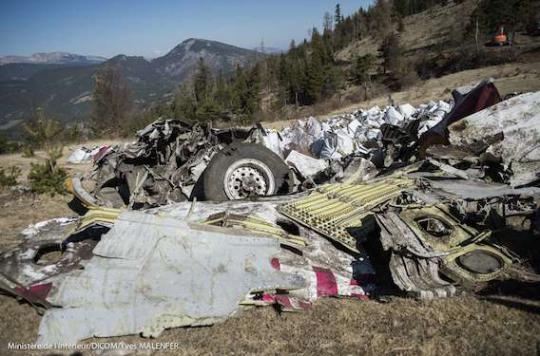Airplane pilots should no longer be left alone in the cockpit and be better monitored. These are 2 of the 6 recommendations of the European Aviation Safety Agency report.

The European Aviation Safety Agency (EASA) wants to learn practical lessons from the Germanwings Airbus A320 crash last March. The investigation revealed that the co-pilot, Andreas Lubitz, had intentionally crashed the plane in the French Alps. The working group, formed by the European Commission, was responsible for highlighting the flaws that could have led to such a tragedy. The report made this July 17 issues recommendations that would prevent it from happening again.
From the first stages of its assessment, the working group highlighted shortcomings in the medical monitoring of cabin crew. “Key players in aviation and medicine have worked together within this group,” explains Patrick Ky, Director General of the Agency. in a press release. This report is the result of an in-depth analysis with practical recommendations, so that such a tragedy does not happen again. EASA stands ready to take the necessary measures. “
There are six measures recommended by the working group. The first has already been put in place temporarily from March: a pilot should never be left alone in the cockpit. This principle “should be maintained”, according to the report.
A network of medical supervisors
The report also advises to systematize the psychological assessment before hiring a pilot. A measure that may be limited if it is not backed up by regular monitoring. Indeed, before his suicide, Andreas Lubitz had consulted more than 40 doctors. Even before he was hired, he had been diagnosed with depression.
The authors of the report are well aware of this: they also recommend the establishment of a “network of medical supervisors” and a medical database for pilots. They should also be offered a support system. Not surprisingly, experts are in favor of random control of drug or alcohol consumption.
The European Commission must now decide whether this package of measures will be applied in a binding way. Violeta Bulc, European Commissioner for Transport, recalled that “the safety of European citizens is at the heart of the Commission’s transport policy (…). If improvements need to be made to European safety and security rules, or in their implementation, with the aim of preventing future accidents, we will take all necessary measures at a European level. “
.















